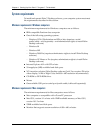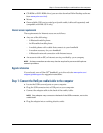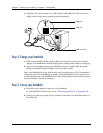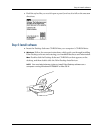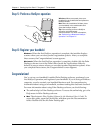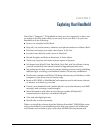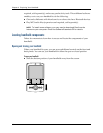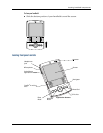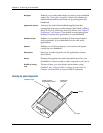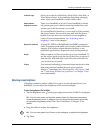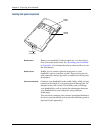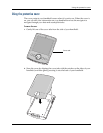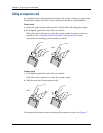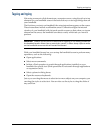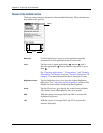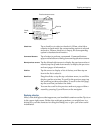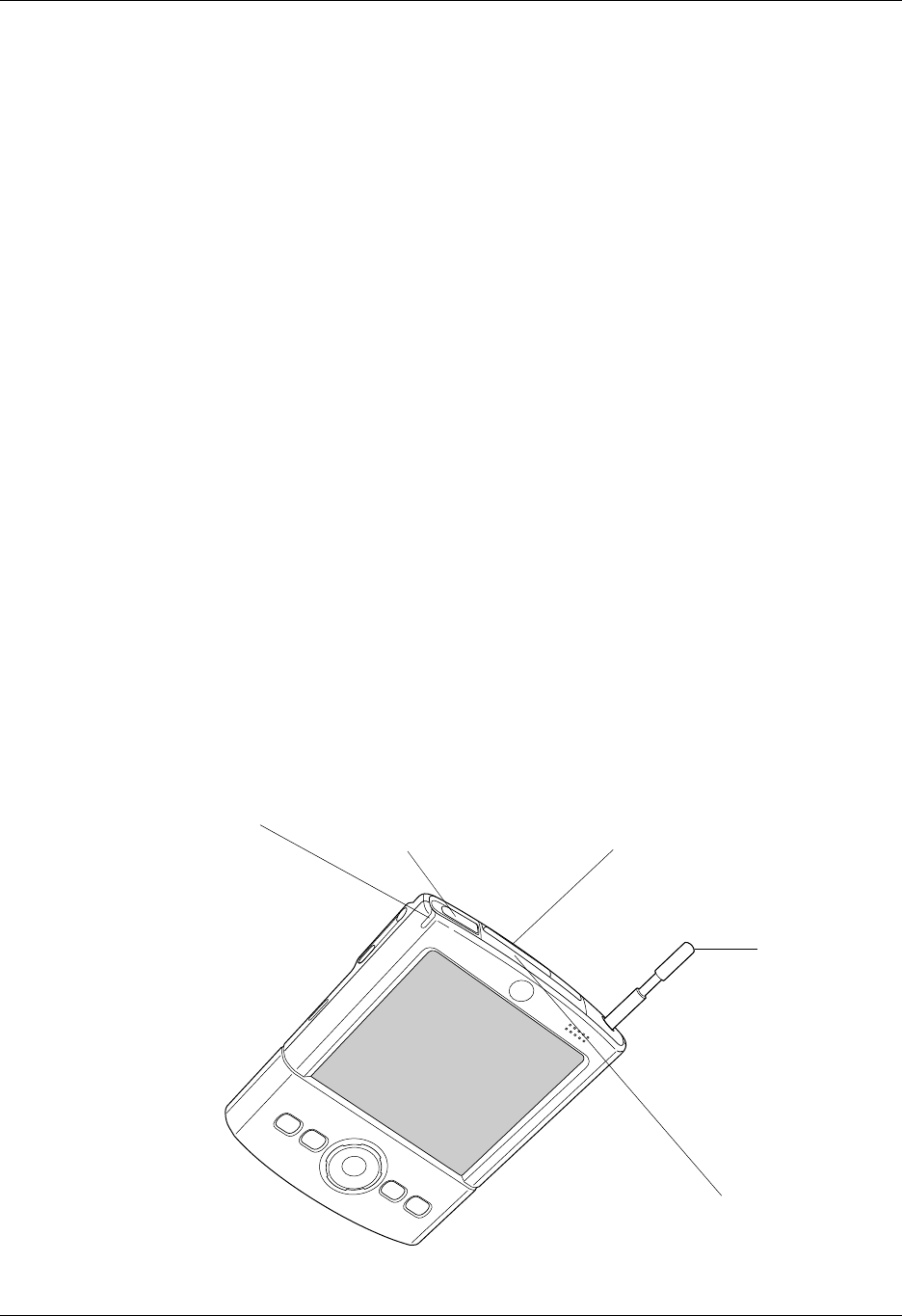
Chapter 2 Exploring Your Handheld
12
Locating top panel components
Navigator
Enables you to select and display records on your handheld
screen. See “Using the navigator” later in this chapter for
additional information, and look for tips throughout this
handbook.
Application buttons
Activates the individual handheld applications that
correspond to the icons on the buttons: Date Book, Address
Book, To Do List, Note Pad, and Voice Memo. See “Buttons
Preferences” in Chapter 22 for details on reassigning these
buttons to activate any application on your handheld.
Headphone jack
Enables you to connect a standard 3.5mm stereo headset
(sold separately) to your handheld for use with audio
applications.
Speaker
Enables you to listen to alarms, voice memos, and game
sounds on your handheld.
Microphone
Serves as an audio input device for applications such as
Voice Memo.
Screen
Displays the applications and information stored in your
handheld. It is touch sensitive, and it responds to the stylus.
Graffiti
®
2 writing
area
The area where you write letters and numbers using
Graffiti 2. See “Using Graffiti 2 writing to enter data” in
Chapter 3 to learn how to write Graffiti 2 characters.
Stylus
Expansion
card slot
Power button/
brightness control
IR port
Indicator light



